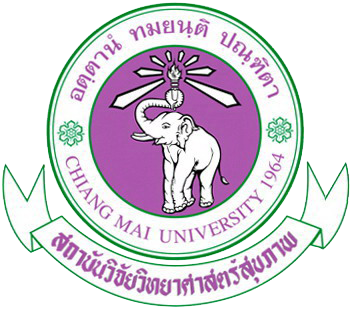CAL-D
Study title
Effect of calcium and high-dose vitamin D supplementation on bone mineral density among perinatally HIV-infected children and adolescents
Study Code
CAL-D Study
Network
N/A
Study PI
Tavitiya Sudjaritruk, MD, ScM
Study Co PI
Prof. Virat Sirisanthana, M.D.
Linda Aurpibul, M.D.
Study sites
Faculty of Medicine and Research Institutes for Health Sciences (RIHES), Chiang Mai University, Chiang Mai, Thailand
HIV Netherlands Australia Thailand Research Collaboration (HIV-NAT), The Thai Red Cross AIDS Research Centre, Bangkok, Thailand
Nakornping hospital (NKP), Chiang Mai, Thailand
Funding agency
Research Institute for Health Sciences, Chiang Mai University
Study design
This study is a multicenter, randomized, open-labeled, phase II clinical trial comparing the effect of a 48-week daily calcium and high-dose vitamin D supplementation to calcium plus normal dose vitamin D supplementation on bone mineral density (BMD) in perinatally HIV infected children and adolescents.
Study objective
Primary objective:
To compare the changes in lumbar spine BMD in perinatally HIV-infected children and adolescents receives 48-week of calcium and high-dose vitamin D supplementation with that of children and adolescents receiving 48-week of calcium and normal dose vitamin D supplementation.
Secondary objectives:
- To evaluate the change in lumbar spine BMD levels, from baseline to week 48, of participants within each study arm.
- To evaluate effect of other known bone mineral determinants e.g., age, gender, tanner stage, specific ART, vitamin D level on changes in lumbar spine BMD after 48-week calcium and high-dose vitamin D supplementation, comparing to 48-week of calcium and normal dose of vitamin D in perinatally HIV-infected children and adolescents.
- To compare the change of vitamin D levels among perinatally HIV-infected children and adolescents receives 48-week calcium and vitamin D supplementation with that of children and adolescents receiving 48-week of calcium and normal dose vitamin D.
- To compare the alteration in bone turnover markers among perinatally HIV-infected children and adolescents receives 48-week calcium and vitamin D supplementation with that of children and adolescents receiving 48-week of calcium and normal dose vitamin D.
- To compare the alteration in inflammatory cytokine levels among perinatally HIV-infected children and adolescents receives 48-week calcium and vitamin D supplementation with that of children and adolescents receiving 48-week of calcium and normal dose vitamin D.
- To determine safety and tolerability of calcium and high-dose vitamin D among perinatally HIV-infected children and adolescents.
Number of enrolled participants (overall/at RIHES)
Perinatally HIV-positive children and adolescents who had been evaluated for BMD within 1 year prior to entry visit. It is estimated that 200 participants will be enrolled to this study across the sites.
For Faculty of Medicine and Research Institutes for Health Sciences (RIHES), Chiang Mai University will enroll approximately 80 participants to the study.
Year: started
March 2015
Year: expected to finish
Febuary 2017
Significance
Adverse bone health is one of the major long-term complications among perinatally HIV-infected children and adolescents receiving ART. Since a great deal of bone mineral accrual occurs during the adolescent years and the peak attainment is usually seen at age 18 years, the loss of bone deposition during this period could lead to serious consequences, particularly increased risk of osteoporosis and bone fragility in later of life. A previous study demonstrated that prevalence of low BMD among perinatally HIV-infected Thai children and adolescents was high (25%). However, the prevention strategies such as calcium and vitamin D supplementation which are widely recommended by many guidelines for preventing of osteoporosis and bone fracture have not been well studied to prove their effectiveness among HIV-infected children and adolescents, especially in resource-limited countries. This is considered as the critical research question in pediatric HIV/AIDS field which are urgently required robust and in-depth investigations.
This randomized clinical trial study will provide important information about the effect of calcium and high dose (comparing to normal dose) vitamin D supplementation on BMD among ART-experienced, perinatally acquired HIV-infected children and adolescents to best understand the relative contributions of the supplementation to improve bone health status. This study will address research questions, fill gaps in knowledge, and draw clinician attentions to the important long-term medical complications in children and adolescents who are growing up with HIV. Moreover, this study will inform healthcare providers and policy makers about the importance of calcium and vitamin D supplementation as one of the measurement to prevent long-term deterioration of bone mass and the mean to promote bone health among these populations.




